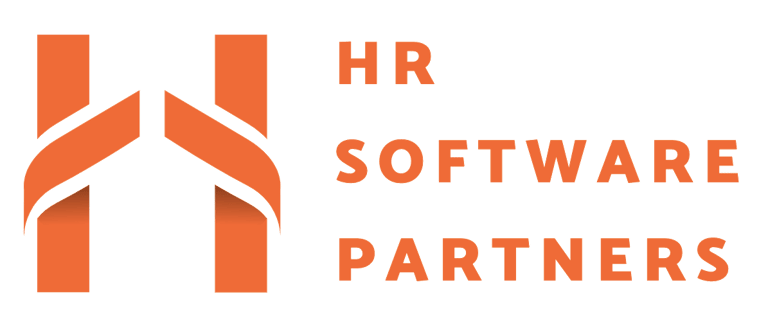HR Compliance Software for SMEs in the UK: Ensuring Your Business Remains Compliant
Stay compliant with the latest HR laws. Discover compliance software for SMEs in the UK that simplifies regulatory adherence.
LAWEMPLOYEE ENGAGEMENT & RETENTIONHRIS SELECTION STRATEGIES


Understanding HR Compliance: Why It Matters for SMEs
HR compliance refers to the adherence to laws, regulations, and policies that govern employee rights and workplace safety. For small and medium-sized enterprises (SMEs) in the UK, understanding HR compliance is paramount not only to avoid legal penalties but also to promote a positive work environment. Various laws dictate how businesses should manage their workforce, including employment law, data protection legislation, and health and safety requirements, each serving to protect the rights and well-being of employees.
Employment law encompasses a wide range of regulations, such as the Equality Act, which prohibits discrimination based on characteristics such as age, sex, or race. SMEs must ensure that their hiring, promotions, and workplace practices align with these legal standards. Failure to comply can lead to costly tribunals and damage to the company's reputation. Moreover, implementing fair employment policies fosters a culture of respect and inclusivity, which can enhance employee morale and productivity.
Data protection is another critical aspect of HR compliance, particularly in the wake of the General Data Protection Regulation (GDPR). SMEs collect personal data from employees, and they are obliged to manage it responsibly. Non-compliance can result in substantial fines and negative publicity, underscoring the importance of establishing robust data protection policies that safeguard personal information while fostering trust with employees.
Health and safety regulations further emphasize the need for compliance in the workplace. SMEs are required to provide a safe working environment and implement procedures that protect employees from potential hazards. This not only meets legal obligations but also demonstrates a commitment to employee welfare, which can enhance staff retention and attract top talent.
In summary, HR compliance is crucial for SMEs not just as a legal formality but as a strategic advantage. Adequate compliance efforts contribute to building a reputable business and lay the foundation for sustainable growth and success in an increasingly regulated environment.
Challenges SMEs Face in Maintaining HR Compliance
Small and medium-sized enterprises (SMEs) often grapple with a myriad of challenges in maintaining human resources (HR) compliance. One notable hurdle is the limited resources available to these businesses. Unlike larger corporations, SMEs frequently operate with constrained budgets and staffing. This reality can lead to insufficient investment in HR functions, resulting in possible oversights in meeting regulatory requirements.
Another challenge is the lack of expertise in HR compliance matters. Many SMEs do not have dedicated HR personnel, and the owners or managers may lack the necessary knowledge to navigate the complex landscape of employment laws and regulations effectively. The absence of procedural knowledge can heighten the risk of non-compliance, as business owners may feel overwhelmed by the numerous legal obligations involved.
The repercussions of non-compliance can be severe for SMEs. Financial penalties imposed by regulatory bodies can place additional strain on a business's already limited resources. Furthermore, non-compliance may lead to legal disputes, which not only incur considerable costs but also distract leadership from focusing on core business operations. Beyond monetary fines, the damage to a company's reputation can be significant. Clients and partners tend to shy away from businesses that fail to adhere to regulations, leading to lost opportunities and a decline in trust.
The confluence of these factors creates an environment where maintaining HR compliance becomes an uphill battle for many SMEs. This highlights the critical need for effective strategies to navigate compliance requirements. Implementing HR compliance software can serve as a valuable solution, providing the necessary support and resources to help SMEs maintain legal obligations while managing their operations more efficiently.
The Role of HR Compliance Software: An Overview
In today's complex business environment, small and medium-sized enterprises (SMEs) in the UK face numerous challenges in maintaining compliance with an ever-evolving landscape of laws and regulations. HR compliance software emerges as a crucial tool that can help these businesses efficiently navigate these complexities, ensuring that they remain compliant while optimizing their human resource processes. This software is designed to automate various HR functions, thereby minimizing the risks associated with non-compliance and allowing businesses to focus on their core activities.
One of the primary advantages of HR compliance software is its ability to streamline processes. By automating tasks such as employee record-keeping, tracking training requirements, and managing documentation, SMEs can significantly reduce the administrative burden involved in compliance management. This automation not only increases efficiency but also enhances the accuracy of record-keeping, which is essential in the event of audits or inspections. As a result, businesses are better positioned to demonstrate compliance with various legal obligations, including employment law and health and safety regulations.
Furthermore, HR compliance software provides SMEs with timely updates regarding changes in applicable laws and regulations. This feature is particularly valuable in the UK, where legislation can change quickly and without much notice. The software can alert businesses to new requirements, ensuring that they remain compliant and avoid costly penalties. Additionally, by offering centralized access to important compliance-related information and documentation, HR compliance software acts as a single source of truth, enabling businesses to manage compliance effectively and efficiently.
In summary, HR compliance software serves as an essential resource for SMEs in the UK, empowering them to enhance their compliance efforts through automation, accuracy, and timely updates on relevant laws and regulations. By leveraging this technology, businesses can protect themselves against compliance-related risks while streamlining their HR processes.
Key Features to Look for in HR Compliance Software
Selecting the right HR compliance software is crucial for small and medium-sized enterprises (SMEs) in the UK to maintain alignment with regulatory requirements. There are several key features to prioritize in order to ensure that the software effectively meets your business needs.
First and foremost, user-friendliness is essential. The software should have an intuitive interface that allows users to navigate easily without extensive training. A system that simplifies compliance tasks ensures that all employees, regardless of their technical expertise, can adhere to necessary protocols without added complexity.
Integration capabilities are also critical. The chosen HR compliance software should seamlessly integrate with existing systems, such as payroll, attendance tracking, and recruitment platforms. Effective integration reduces the chances of data discrepancies and allows for a more streamlined workflow, which is especially beneficial for SMEs that may not have extensive resources for additional software training or maintenance.
Another fundamental feature to consider is real-time updates regarding legal changes. The HR landscape is constantly evolving; therefore, compliance software must provide timely information on new regulations and changes in legislation. This ensures that your business can swiftly adapt to regulatory shifts without the risk of non-compliance.
Data security measures cannot be overlooked. Protection of sensitive employee information is paramount, and the software should employ advanced security protocols such as encryption and access controls to safeguard data from unauthorized access or breaches.
Finally, robust reporting functions are essential for tracking and demonstrating compliance efforts. The software should allow SME owners to generate custom reports that can highlight compliance status and identify areas needing attention. This not only helps in internal assessments but also serves as evidence of compliance during audits or inspections.
By evaluating these critical features—user-friendliness, integration capabilities, real-time legal updates, data security, and reporting functions—SMEs in the UK can confidently choose HR compliance software that best suits their specific needs.
Benefits of Implementing HR Compliance Software for SMEs
The implementation of HR compliance software offers numerous advantages for small and medium-sized enterprises (SMEs) in the UK. One of the primary benefits is the enhancement of operational efficiency. By automating various HR processes, such as payroll management, employee documentation, and compliance tracking, businesses can streamline their operations. This automation not only saves time but also minimizes the potential for human error that may lead to costly compliance violations.
Additionally, HR compliance software significantly reduces the risk of non-compliance penalties. Staying up to date with ever-evolving labor laws and regulations can be challenging for SMEs, particularly those without dedicated HR departments. Compliance software provides timely updates and alerts regarding changes in regulations, thereby ensuring that the business adheres to legal requirements. By maintaining compliance, SMEs can evade hefty fines and the reputational damage that often accompanies non-compliance incidents.
Another noteworthy benefit is the improvement in employee satisfaction stemming from transparent HR practices. With compliance software, employees have easy access to relevant policies, procedures, and their own employment records. This transparency fosters trust and confidence in the organization, reducing misunderstandings and potential disputes. Moreover, many compliance solutions include mechanisms for employee feedback, which can be invaluable in creating a more inclusive workplace.
Finally, by utilizing HR compliance software, business owners can allocate more time to strategic growth initiatives instead of being bogged down by administrative tasks. This allows them to focus on scaling their operations, improving customer relations, and enhancing overall business performance. In essence, HR compliance software acts as a supportive partner in navigating the complexities of compliance, enabling SMEs to thrive in a competitive environment.
How to Select the Right HR Compliance Software for Your SME
Selecting the appropriate HR compliance software is a crucial step for SMEs in the UK. It begins with a thorough evaluation of your business requirements. Each organization operates differently, and understanding the specific compliance challenges faced by your SME is vital. Start by identifying the areas of HR compliance that need the most attention, be it payroll, employee benefits, data protection, or health and safety regulations. By pinpointing these needs, you can streamline your search for a solution that effectively addresses them.
Next, conduct comprehensive market research to explore the various HR compliance software options available. The software market offers a plethora of solutions designed specifically for SMEs. Focus on identifying those that cater to UK-based businesses to ensure they are equipped with the latest legal requirements and standards. Collect information on the features and functionalities of different software solutions, as well as user reviews and ratings. This step not only broadens your options but also aids in understanding how well a particular software aligns with your business needs.
Budget considerations are another critical factor. Determine what you can afford without compromising on essential functions. While it's tempting to opt for the cheapest option, consider the long-term benefits each software can bring. This approach ensures that investments in HR compliance tools yield substantial return on investment, aiding in smoother operations and reduced risk of non-compliance fines.
Finally, seeking professional guidance is advisable. Engaging HR consultants or industry experts can offer insights you may not have considered. Experts can assist in evaluating the software options and help ascertain the best fit for your organization. Effective selection of HR compliance software ensures that your SME can navigate the complexities of legal requirements with confidence and efficiency.
Getting Started: Implementing HR Compliance Software
Implementing HR compliance software can significantly enhance how small and medium enterprises (SMEs) manage their human resources and ensure adherence to legal standards. To facilitate a seamless transition, it is essential to prepare your team thoroughly before the technology goes live. Begin by assessing the current HR processes and identifying areas that could benefit from automation and compliance oversight. This groundwork will not only help tailor the software to your specific needs but also enable the team to understand the rationale behind the change.
The next crucial step in the implementation process is staff training. It cannot be overstated that equipping your workforce with the knowledge and skills to utilize the HR compliance software effectively is pivotal. Develop a comprehensive training program that covers all the features of the software. This should include hands-on sessions that allow employees to engage with the software in a controlled environment. Providing access to ongoing support and resources will further bolster their confidence in using the new system, ensuring that compliance standards are met efficiently.
Integration with existing systems is another vital aspect of implementing HR compliance software. A thorough analysis of your current software landscape will help you determine how best to harmonize the new solution with existing tools such as payroll systems and employee databases. Ensuring smooth data flow between these platforms will enhance operational efficiency and minimize data entry errors.
Engaging with HR software partners can provide additional insights and support during the implementation phase. Such partnerships can offer expert guidance tailored to your business's unique requirements. Websites like hrsoftwarepartners.com can serve as valuable resources, helping you navigate the complexities of implementation while ensuring that your SME remains compliant with HR regulations.
